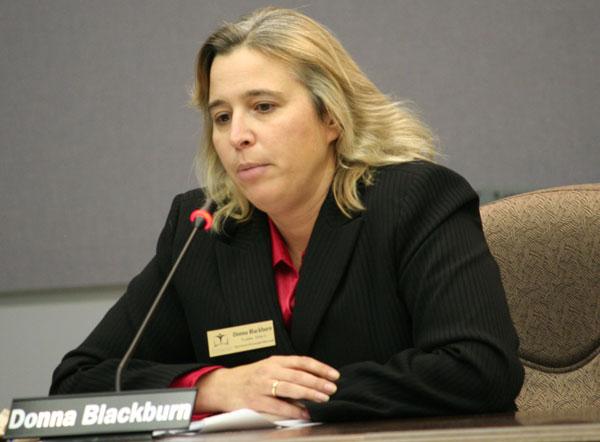“I guess part of me is angry and, as a result of this, I am more determined to make sure that this does not happen again,” says Ottawa-Carleton District School Board (OCDSB) trustee Donna Blackburn, speaking about Jamie Hubley, the gay teen who committed suicide on Oct 14.
Blackburn is the first out lesbian to sit on the OCDSB. At the board meeting on Oct 25, she took the opportunity to talk about her struggle as a gay teen in high school.
“High school was a very hard time for me, and during that time, I was treated for depression and under the care of a psychiatrist,” she said. “Looking back on that time of my life, which is over 20 years, I can tell you that one of the main reasons I suffered from depression was because I was living under constant fear — I was trying to be something I wasn’t.”
Blackburn spoke after Jennifer Adams, the director of education for OCDSB, opened the meeting. In her report, Adams acknowledged the loss of Hubley as well as the problem of homophobia and bullying in schools.
“This tragedy is a reminder of the complexities we are faced with every day in our schools. Issues of bullying, sexual orientation, depression and suicide require a district-wide and a community-wide effort,” Adams said. “I want to be clear that for the OCDSB, bullying and homophobic comments and actions have not, and never will be, tolerated.”
Adams stated that although steps have been taken to make classrooms safe spaces, there is still more work to be done.
“Our next step will be the hallways, lunchrooms, playgrounds, where staff are not always able to witness every interaction between students. This work will require staff, trustees, parents and the community to work together because a cultural change is required.”
Adams also commented on some of the work that the OCDSB has done to promote inclusiveness: the inclusion of questions about sexual orientation in the OCDSB’s recent school survey and the board’s participation in this year’s Capital Pride march.
Blackburn, who has worked to promote inclusiveness and diversity within the schools, now vows to work toward getting queer alliances, diversity clubs or gay-straight alliances (GSAs) into schools.
“I want to know how many GSAs we have. What schools are they in? What schools are they not in and why?” says Blackburn. “I think it is incumbent on the adults in the high schools that don’t have GSAs to get them going. [We should] not rely on the students to initiate one, because we can’t have one student running around and putting up posters and for the burden to be on that kid or those few kids. We need these GSAs to be set up, and the adults need to get engaged actively with these kids.”
Blackburn wants to go into schools and talk about being an openly gay woman in the hope that she can help prevent other teen suicides.
“If I can go to a GSA and talk about my experiences, if I can go speak at the Rainbow Forum, if I can talk to teachers and talk about my experiences, answer their questions or do whatever I can to make sure that this does not happen again, I am prepared to do it,” she says.

 Why you can trust Xtra
Why you can trust Xtra


